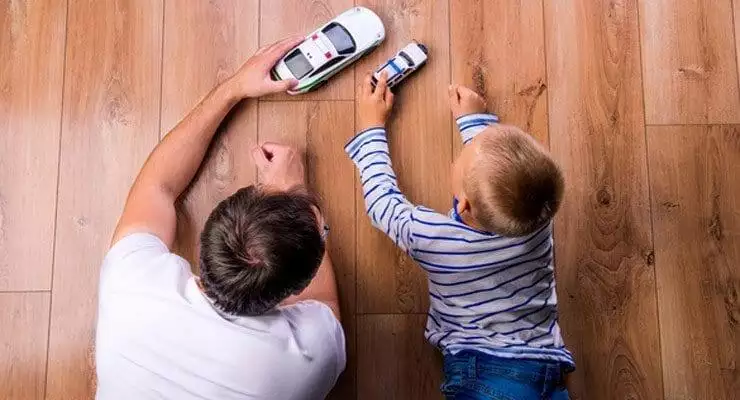When my siblings and I were kids growing up in Washington DC in the 1970s, afterschool activities meant playing kickball or exploring Battery Kemble Park with a few dozen other elementary school children, unsupervised by adults. Christmas presents for the luckiest families meant toys, books and stuffed animals. We never saw a flash card or a memory game outside of school, and puzzles did not qualify as legitimate presents. Four of the six members of my family ended up graduating from Harvard, not complete dummies as far as I can tell.
Today, one lone generation later, presents for children often mean math drills, electronic games that teach vocabulary, logic patterns, or even “ecofriendly facts.” There are dozens of “fun science games” for 3 to 6 year olds. Parents’ iPads and Androids and smart phones are stocked with spelling and math drills…for toddlers.
As a parent, I took my kids to an expensive game-based tutoring service. I gave them lots of flash cards and memorization games. I don’t think it hurt my children. But there’s little evidence that any of that stuff actually helped them, either.
This holiday season, it’s worth paying attention to the latest research into childhood that shows that kids’ brains need, more than anything, play in order to develop. Kids learn by touching objects, by grabbing and pulling and moving and jumping. The latest research shows that children need more running and shouting. More interaction and free-range imaginative play with adults and other kids. In fact in Norway, the country with the highest collegiate education rate in the world, children do not start formal classroom education until they are seven years old.
In other words: kids do not need more expensive gifts from us that require sitting in a desk in a classroom, or interacting with an electronic slab of metal and glass. This isn’t to say that parents’ and educators’ alarm about public education in the U.S. today is off base: by several independent measures, the U.S. educational system is failing. But educational games and standardized testing don’t seem to be helping. Maybe we need to examine our parental focus on educational programs, ones that may make adults feel more responsible, but that mask our rank as 14th in cognitive skills and second in ignorance compared to other countries.
So as you tackle your holiday shopping this year, keep this advice in mind for your youngest loved ones. Look for the type of presents you enjoyed as a child; ones that taught you something and made you want to play more. Think of a kite, or a deck of cards, or watercolors. The non-profit Hanen Center in Canada suggest toys that allow for open-ended and unstructured pretend play, such as blocks, puppets, Lego’s, costumes, Play-Dough, and toys that allow kids to pretend to be adults, such as kitchens, fake construction tools, and vehicles.
In other words, pick gifts that translate into fun, play, and imagination, not a specific skill or test score. If you want to stimulate a child’s mind, it seems that play matters more than spelling drills.
And the best gift of all may be play that involves you.





